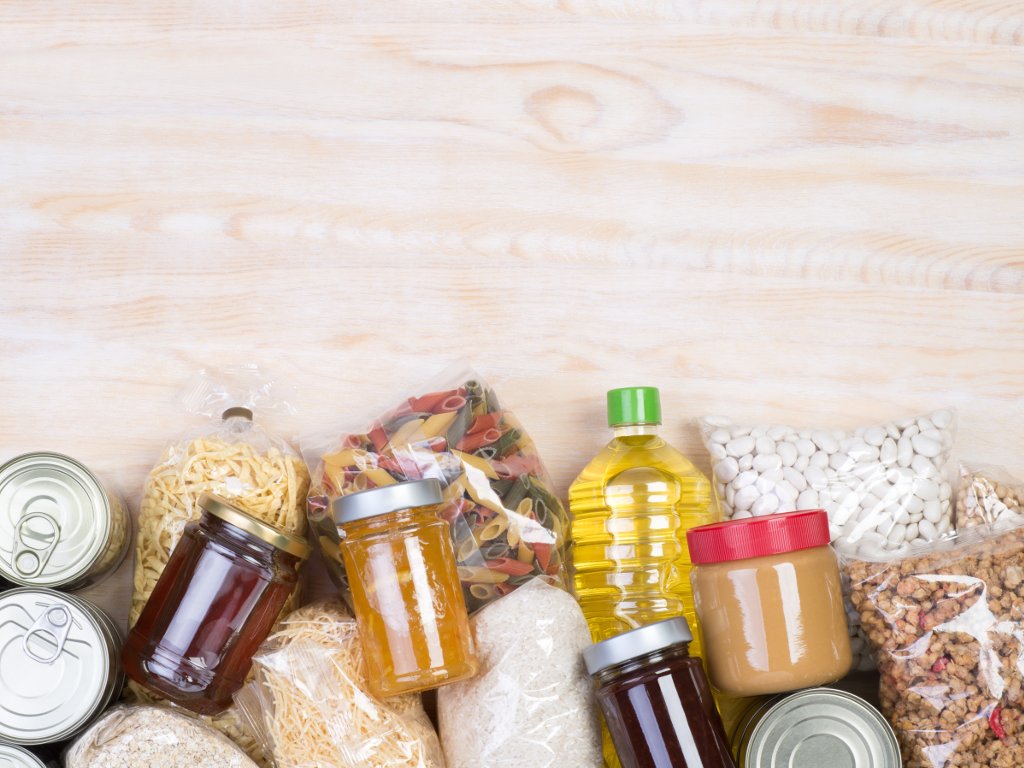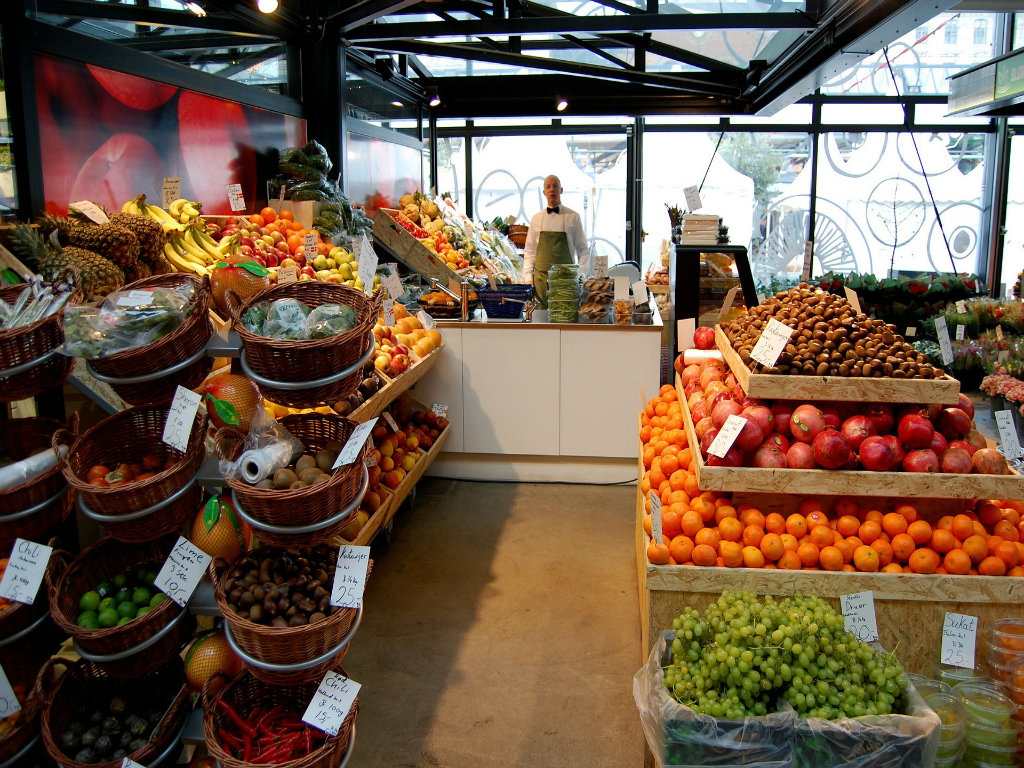Will the New Government Abolish VAT on Food Donations - It Now Pays More for Companies to Throw Away Food Than to Donate It
 Tuesday, 31.05.2022.
Tuesday, 31.05.2022.
 08:38
08:38

The fact that donations would increase by RSD 160 million by abolishing VAT did not impress them either. As well as the fact that in the European Union, 20 member states have already abolished the VAT on food donations.
While the authorities remaine silent, Serbia is at the infamous top on the list of countries that throw food away. As per the data of the Center for Environmental Improvement, each and every citizen of Serbia throws away 108 kilograms of food a year, whereas the world average is 74 kilograms.
The trade sector is "responsible" for 13% of the world`s food waste, according to the United Nations Environment Program (UNEP). It is estimated that the trade sector threw away 118 million tons of food in 2019. There are no data for Serbia in this area. But the impression is that companies are very interested in reducing this number.
Companies want to donate groceries
Last year, the Coalition for Charity, led by the Ana and Vlade Divac Foundation, launched the "Save Food, Save Humanity" campaign with two goals - to reduce the huge amount of food thrown away and to increase food donations for the most vulnerable citizens.
Thanks to the support of more than 35 companies, but also the equal support of citizens, who donated food during organized actions and money through the Donacije.rs platform, during the three months of the campaign a total of 69,717 kg of food have been collected and distributed in cooperation with partners. project Zeljko Mitkovski.
- We are impressed by the response of retail chains and food manufacturers, but also by other companies that have joined in, and come from other industries - banks, mobile operators, IT companies, law firms, food distributers and others. The companies themselves contacted us with the wish to get involved and help, bearing in mind that, according to data from 2019, 480,000 people cannot meet basic living needs - warns Zeljko Mitkovski.
Food is being thrown away, and the ministries remain silent
Despite the good response from the companies, the problem still persists. As our Mr. Mitkovski explains, it is currently more profitable for companies engaged in the production or sale of food to destroy the food after the expiration date, because then they do not pay VAT, instead of donating it before the expiration date, because in that case they would need to pay VAT.

However, VAT is still not being abolished. The Law on Food Surpluses is no longer mentioned, which was supposed to solve the situation in this area and motivate donors to donate food. But that is why working groups are being set up. The working group for the Draft Law on Food Surplus started their work at the Ministry of Social Affairs in 2015, the media reported. We have not been able to find out how many times this group has met so far and what has it done because the Ministry of Labor, Employment, Veterans` Affairs and Social Affairs did not respond to our questions. The Ministry of Environmental Protection has also remained silent.
What the Ministry of Finance says
The Ministry of Finance, on the other hand, reveals that on March 22, 2019, the Philanthropy Council passed a Decision on the formation of its own working group to define criteria for exempting individual VAT donations, as well as a Decision on establishing a working Group to improve the legal framework for donation of surplus food. , which consists of representatives of various state bodies and foundations, including representatives of the Ministry of Finance.
- The task of the Working Group is to define criteria and ways to exempt individual donations from VAT that would create a stimulating environment for donations, taking into account positive examples from EU member states, while the task of the working Group is to consider and analyze legislation on food donation, the laws or amendments to any of the applicable laws and to propose to the Council for Philanthropy an act that will treat at least two segments in resolving this issue: food, i.e. food that is about to expire; surplus food resulting from the preparation of ready meals. In this regard, the above-mentioned working groups are considering possible solutions - the Ministry of Finance stated for the eKapija portal.
Expectations from the new government
While these working groups have been considering possible solutions for more than three years, the Charity Coalition presented the problem of VAT collection in July 2021 at the National Assembly session of the Subcommittee for Monitoring the Situation in Agriculture in Marginal - Underdeveloped Areas of Serbia.

As Mitkovski reveals, the present deputies agreed that it is necessary to provide conditions for the companies to abolish the collection of VAT on soon-to-expire food donations to underdeveloped municipalities and the population. According to a survey conducted in 2020, 88% of Serbian citizens also support the abolition of VAT on food donations.
- The cost-benefit analysis conducted by the Coalition for Charity and the Forum for Responsible Business indicates the social and economic profitability of the abolition of VAT on food donations. We believe that the new Government and the National Assembly will recognize the importance of this issue and the necessity of resolving it, and will harmonize our tax regulations with the EU Guidelines on Food Donation. In the European Union, 20 member states have already abolished VAT on food donations, and the leading business associations in the country are advocating for resolving the issue of VAT on food donations in Serbia - says Mitkovski.
"Best used by" does not mean "usable by"
In order to increase donations in this area, it is necessary to change the regulations that define the trade of food with the deadline "usable until" and "best use until". According to our interlocutor, the EU guidelines on food donation also recommend donating food that is safe, expired with the label "best used until" and which is safe for a certain period of time.
- The Law on Food Safety through Article 26 enables the Minister of Agriculture and the Minister of Health to enable the donation of a certain type of food through the rulebook even after the expiration of the "best use by" deadline, which is related to optimal food quality, whereas the expiration of the "usable by" date signifies that in no case should such a food be consumed, because that period is related to food safety. In addition, it is necessary to harmonize our Ordinance on declaring, labeling and advertising of food with EU Regulation 1169/2011 in the segment which defines the trade of food with a deadline of "best use by" - explains Mitkovski, adding that, in parallel with changes in the legal framework, and strengthening the capacity of food reception and distribution organizations, which often incur logistics and transportation costs.
Marija Dedic
 Fondacija Ana i Vlade Divac
Fondacija Ana i Vlade Divac
 Ministarstvo finansija Republike Srbije
Ministarstvo finansija Republike Srbije
 Ministarstvo zaštite životne sredine Republike Srbije
Ministarstvo zaštite životne sredine Republike Srbije
 Centar za unapređenje životne sredine
Centar za unapređenje životne sredine
 Ministarstvo za rad, zapošljavanje, boračka i socijalna pitanja Republike Srbije
Ministarstvo za rad, zapošljavanje, boračka i socijalna pitanja Republike Srbije
Most Important News
06.04.2024. | Agriculture
Preconditions for Placement of Fresh Blueberries and Dried Plums in Chinese Market Secured

16.04.2024. | News
Jovan Ciric, Leasing Director Retail MPC Properties – MPC Echo symbolizes our desire for good ideas and innovative endeavors to spread freely and bring about positive changes

16.04.2024. | News
10.04.2024. | Finance, IT, Telecommunications, Tourism, Sports, Culture
Creative Industry – What This Serbian Economy Sector Worth EUR 2 Billion Encompasses

10.04.2024. | Finance, IT, Telecommunications, Tourism, Sports, Culture
25.04.2024. | Construction, Transport
Railroad from Novi Sad to Subotica connected – Regular traffic at year’s end

25.04.2024. | Construction, Transport
16.04.2024. | News
Economy Fair in Mostar opens – 26 companies from Serbia exhibiting

16.04.2024. | News
26.04.2024. | Construction
New business quarter in the center of Belgrade – Artklasa, a place where employees love to go to work

26.04.2024. | Construction


 Izdanje Srbija
Izdanje Srbija Serbische Ausgabe
Serbische Ausgabe Izdanje BiH
Izdanje BiH Izdanje Crna Gora
Izdanje Crna Gora


 News
News






